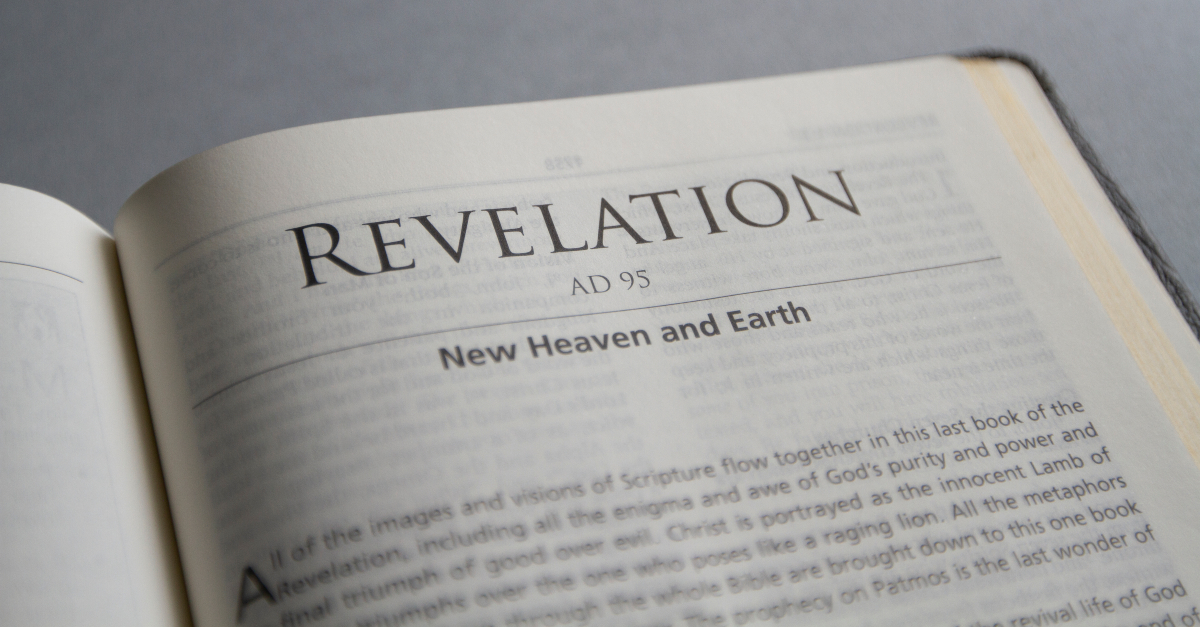
“Give me liberty or give me death,” was the famous cry of Patrick Henry just prior to the Revolutionary War.
Something deep inside the human heart seeks freedom. Freedom from tyrannical oppression. Freedom from control. Freedom from conscience. Freedom from consequence. Freedom from pain, guilt, and sin. Freedom…from God.
As with most human desires, the quest for freedom can lead to a righteous or unrighteous end. It can lead to a more just society, or it can lead to a society ripe with abuse and discrimination. It can lead us to God, or it can lead us to an exaltation of self.
The topic of individual freedom has come to the forefront of many debates in the wake of our current global crisis, and will likely continue. Some say that we must not allow our individual rights to be trampled. Others say that clinging to such rights is selfish—we must prioritize the collective, the “greater good” of all.
“Too many [Christians] are spreading conspiracy and demanding their ‘rights’,” said one online commentator in a heated exchange.
The concept of individual rights is ingrained in the American way of life, it is enshrined in our Bill of Rights, but the quest for liberty must have a holy perspective if it is to accomplish a holy objective.
This topic isn’t easy, and the answers aren’t cut and dried. But studying it provides critical insights into the events of our day.
Let’s first examine the topic of personal freedom in light of Scripture.
What does the Bible have to say about individual liberty?
A lot, actually.
Individual liberty is a persistent theme throughout Scripture. It shows up just a few pages into the Good Book. And, we’ll see, that it shows up again at the end, and it is sprinkled all throughout.
In the garden, God established the personal liberty of human beings as He created a paradise with only one rule: “You are free to eat from any tree in the garden; but you must not eat from the tree of the knowledge of good and evil, for when you eat from it you will certainly die.” (Genesis 2:17-18)
Do not eat from that tree—it’s not a long list. But just a few chapters into Genesis, we see that Adam and Eve exercise their personal liberty, or free will, and break the one and only rule.
The consequences are catastrophic. All of human history has been tainted by that single act of freedom.
I’ve often wondered why God put that much power in the hands of one man and one woman. It seems…reckless. Their individual liberty cost all of humanity paradise. They did not just forfeit this treasure for themselves, they forfeited it for everyone.
Have you ever wondered why God allowed free access to that tree? If it had been up to me, I would’ve manned it with armed guards. Adam and Eve would have stayed more than six feet away from that tree. Forever.
But I’m not God, and Scripture teaches us that before the foundations of the earth, Yahweh had a plan. He knew that His children would fall. He knew that our individual liberty would harm us. And He knew that He would have to forfeit his liberty to save us. (1 Peter 1:20-21, Ephesians 3:9-11)
In that context, I marvel at the value God put on our freedom. He knew the astronomical cost it would bring to those He created and to Himself—and He gave it to us anyway.
God put the highest price on our liberty as He paid the highest price to redeem it.

Individual liberty causes great harm throughout Scripture, but so does collective power.
In the Old Testament, we continue to see the disastrous consequences of mankind exercising free will. And we see powerful civilizations collapse. In Noah’s day, “Every inclination of the thoughts of the human heart was only evil all the time. The Lord regretted that he had made human beings on the earth.” (Genesis 6:5-6)
For many generations, men and women used their liberty to rebel, and the result was another great fall, this time a worldwide flood.
But then in Genesis 11, we see the first concentration of human power in collective form.
After the flood, humans unite to make a tower to save themselves. Instead of receiving God’s promise never to flood the earth again, man determines to produce his own salvation, an edifice soaring into the sky—a monument that would not succumb to a flood.
This concentration of human power disturbs God. Greatly.
He says, “Nothing they plan to do will be impossible for them." (Genesis 11:6) So God confuses their language and scatters them “over the face of the whole earth.” (vs. 9)
How curious.
Why does this coalesced display of human power concern God? Why does He thwart man’s unified creativity and ingenuity by making it impossible for people to communicate?
Collective power can cause greater harm than individual liberty.
“The answer is in mankind’s capacity to turn gifts into curses (Genesis 3:17-19), and abilities into abuses. The flood had not changed the nature of sinful human beings. A powerfully united humanity, inclined to do evil, could accomplish great wickedness. No matter how perverse, outrageous, or ridiculous something might seem, mankind can and will attempt it, given the opportunity.”
Human beings can turn the gift of liberty into a curse. We can use our freedom to abuse others. This is costly on an individual level, but the Tower of Babel shows us something more distressing—collective power, a “powerfully united humanity,” can cause exponential harm.
Consider this astonishing fact: God didn’t stop the exercise of individual liberty in the garden, but He did stop the exercise of collective power at Babel.
The implications of this truth are staggering.
God allows individuals to taint all of humanity, all of creation, with sin through the exercise of their individual freedom. But He does not allow a worldwide concentration of human power to “save humanity” through what they perceive to be good, not even for a minute. He nips that prospect in the bud.
Why?
We don’t know what is truly good in the same way God does. And our inability to perceive good from evil is bad for the individual, but it is disastrous for the collective, for a “united humanity.”
The story of Scripture is clear—the Egyptians, the Amorites, Hittites, Caananites, Perizzites, and Jebusites, the Assyrians, Babylonians, Persians, Romans, and the Israelites—individually they harm themselves and others. Collectively they harm nations. They harm the world.
The Bible teaches us this time and time again, and so does history. In nations where liberty is denied to the individual, great atrocities occur.
So, then, Scripture restricts the use of collective power while giving individuals free rein?
Not so fast…

What does Jesus teach us about individual liberty?
Into this complicated narrative of individuals and nations, the Son of God is born.
Jesus of Nazareth arrives on the scene and ministers to a very oppressed people. The Jews expect a Messiah to come and deliver them from the tyranny of Rome, from a united, powerful, evil regime.
He doesn’t do that.
Instead, He delivers humanity from the tyranny of sin. He delivers every willing person from the compulsion to use our personal liberty to harm others and ourselves.
The long-awaited Messiah comes, but He doesn’t conquer nations. He conquers the human heart.
How?
By sacrificing His own liberty. By giving His life, Jesus liberates the human soul from sin and death.
“It is for freedom that Christ has set us free. Stand firm, then, and do not let yourselves be burdened again by a yoke of slavery.” – Galatians 5:1
But why did He start with the individual? Why didn’t He confront the evil empire ruling the world?
Because—God cannot heal a nation until He first heals the individual souls that comprise it.
Temporary salvation may come to a group of people, to a nation, but eternal salvation comes only to the individual who kneels at the foot of the cross, to the one who lays his or her liberty down and accepts God’s grace.
In short, we are not saved as a nation. We are saved as individuals.
What does Jesus say about collective power?
Curiously, Jesus says little about the governments that preside over us, only to give to our leaders what is due them. (Matthew 22:21) But Scripture does leave us with a set of overriding principles that guide our personal behavior and shape our collective action.
The New Testament church “shared everything they had,” (Acts 4:32) as the Apostle Paul encourages us to “in humility value others above yourselves, not looking to your own interests but each of you to the interests of others.” (Philippians 2:3-4)
Personally, we are to deny ourselves liberties that may harm others. This message is clear in Scripture. (1 Corinthians 10:24)
But does this mean we are to sacrifice our individual rights for the good of all?
Scripture does not say this. As mentioned before, collective power has the potential to do exponential harm. God prevents collective power at Babel but not individual free will in the garden.
So where does this leave us?
Should we prioritize individual liberty or the collective good?
Throughout Scripture and human history, we see this dangerous dance: the rebellious exercise of individual free will causes whole nations to rebel against God, but the absence of personal liberty causes a dangerous concentration of power that oppresses people
Which should concern us more?
The answer, quite simply, isn’t either/or...It is both.
Our personal liberties must be used responsibly. Scripture shows us time and again how the reckless use of our individual freedom leads to great harm.
But we must also recognize that forfeiting our personal liberties comes at, arguably, a much greater cost.
Power can be a toxic force, especially when concentrated, especially when the people are given no recourse of defense. Unbridled collective power has led to the greatest atrocities in human history, the greatest harm. A nation that reveres individual liberty is the best-known antidote to these horrific global outcomes.
This is the lesson of Scripture. This is the lesson of history.

Finally, what does Revelation teach us about individual liberty?
Let’s consider one last example of individual freedom in the Bible that comes from Revelation. It is sobering. This prophetic book tells us that those who refuse to take the mark of the Beast, which allows people to buy and sell, will die. (Revelation 13:16-17) It is fear that causes these individuals to forfeit their personal liberty.
To be clear, the fear is legitimate. The prospect of homelessness and starvation is not a pleasant one. But these men and women sell their individual freedom for a bed and for their daily bread. Fear causes them to forfeit their personal liberty and brand themselves with the anti-Christ.
Scripture confirms another truth that history has shown—there is no greater fuel for concentrated power than fear.
This end-time prophecy about the danger of forfeiting our personal liberties bookends Scripture’s lessons on individual freedom:
We see that in the garden, Adam and Eve abuse their personal liberty and invite a curse into God’s creation. Jesus sacrifices His liberty to redeem us from that curse, to buy back our freedom. And in the end, those who sell the freedom God purchased at the cross, sell their own redemption.
So, we can rightly conclude from Scripture that the issue of personal liberty is not a selfish one—but individual liberty can be used selfishly. As Christians, we must stand in opposition to the selfish use of our freedoms, and we must have rigorous debates about what that means.
But we must not forfeit these liberties, and we must not trust that all in power have God’s good in mind.
In short, the abuse of individual liberty may harm other individuals, but the forfeit of individual rights will harm every individual.
Where does this leave Christians in the debate about individual rights verses the collective good?
Simply put…always be willing to give up a personal liberty to help your fellow man. But do not sacrifice the individual rights of all, for without such rights, no man can be free, or safe. And a free and safe society allows the Gospel to be spread, which is our only true salvation in this life…and in the life to come.
Photo Credit: ©GettyImages/Kardd

Listen to Catherine's FREE Christian Apologetics Podcast for Parents - Christian Parent, Crazy World, available now at LifeAudio.com!









